Published in The Hill Times, March 22, 2017
By Amy Karam and John Gruetzner
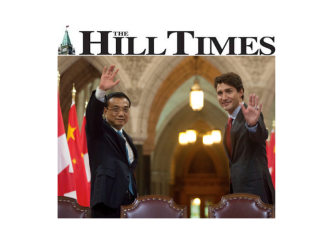
The Canadian government had its first round of exploratory talks with China last month as a precursor to potential negotiations for a free trade agreement. But before Canada executes a new economic arrangement with China, the first step should be completion of a national business plan to significantly increase exports of goods and services, as well as attract investment.
A bilateral trade agreement might reduce some of the irritants and obstacles to Canadian exporters. As a stand-alone solution, however, it will not actually trigger significant improvements of Canadian exports to China. Expansion of exports will require investment and retooling to service the Chinese market, in the form of a national business plan. This plan should be market driven but at catalytic points supported by the best practices of a public-private partnership. This practical blueprint should build on conceptual studies by the Conference Board and the Canada China Business Council. A private sector-led task force that includes rail companies as well as investment firms should prepare the blueprint. China as a customer should provide guidance.
Initial government support with prudent financial assistance to develop the infrastructure to service commercial development of resource projects and processing is required. Across Canada there are significant commodities like copper, coking coal, liquefied natural gas, chrome, and the wood fibre in the pine beetle forests that require infrastructure to be able to develop. A business plan will better allocate federal infrastructure funds to address the recent concerns being raised by the Parliamentary Budget Office and the Fraser Institute.
To be able to better execute this national business plan, a review of the federal government’s trade financing and market support teams is needed. Industry Canada, Export Development Canada, the Business Development Bank of Canada, and, if established, the national infrastructure bank must prudently share this financial risk. A capital pool or a joint line of credit between the China Development Bank and EDC could provide capital with better market-driven principles that is customer-driven.
Future Canadian corporate development is at risk if globally qualified capital partners, management, and boards of directors cannot be organized. The Canadian government must set an example by adding international board members based in China with business experience to key Crown corporations such as EDC, BDC, and the Canadian Commercial Corporation.
Canada should also be building on its pending position as a shareholder in the Asian Infrastructure Investment Bank, implementing a marketing strategy to maximize its participation in China’s independent “One Belt, One Road” infrastructure investment globally.
A separate high-end manufacturing strategy is required, but there are better multilateral trade protocols to use to secure a fair playing ground. China’s natural economies of scale and the Chinese government’s support for a Made in China 2025 strategy make competing in the manufacturing sector difficult.
A meaningful redesign of government trade support that includes triaging of the number of companies that receive assistance and human resources is long overdue. Part of BDC’s advisory services should be based on the ground in Canada’s top export destinations to support only its own clients. Global Affairs Canada and BDC should expand engagement of locally based resources or expand postings to five years to improve industry- and sector-specific experience. This approach dovetails with the leading exporter growth funds being considered by Canadian banks.
A better economic partnership with Beijing will not be easy, politically or tactically, to negotiate. To take the pain but still not create greater prosperity for Canadians would be a major policy mistake. For Team Canada to maximize its relationship with China, a proactive business-to-business partnership will be required.
John Gruetzner is the managing director of Intercedent Limited, an Asian-focused business advisory firm. Amy Karam is the author of The China Factor and principal at Karam Consulting. She has worked for Cisco and at Apple, Visa, and other leading companies.
Published in The Hill Times, March 22, 2017
By Amy Karam and John Gruetzner
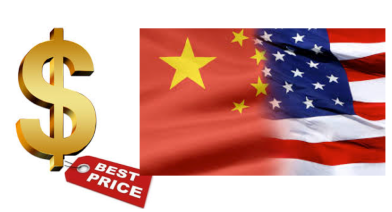 This is the fourth article in a 5-part series on how the West can change its game to win in the new global economy. It is based on the 5Ps of Global Marketing Strategy, first introduced in
This is the fourth article in a 5-part series on how the West can change its game to win in the new global economy. It is based on the 5Ps of Global Marketing Strategy, first introduced in 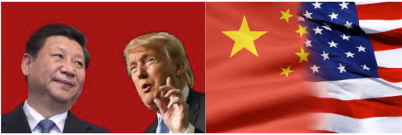
 I was honored to be part of the China Embassy/BLG roundtable discussion on “The 4 Comprehensives Strategy & China’s Development”, the compass for China’s direction. The Vice Minister, International Dept of the CPC Central Committee emphasized the importance of rule of law and governance and the efforts to strengthen party governance and freedom of speech in China. Having become a middle income in country he discussed the traps and challenges therein.
I was honored to be part of the China Embassy/BLG roundtable discussion on “The 4 Comprehensives Strategy & China’s Development”, the compass for China’s direction. The Vice Minister, International Dept of the CPC Central Committee emphasized the importance of rule of law and governance and the efforts to strengthen party governance and freedom of speech in China. Having become a middle income in country he discussed the traps and challenges therein.
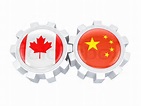 Canada continues to build its momentum in shaping a new relationship with China, given the visit by the Premier of China, Li Keqiang — the first China visit to Canada since 2010. These talks, along with Prime Minister Trudeau’s visit to China just a few weeks ago, is stimulating many questions and some confusion as to the direction that Trudeau is taking — what is his long term plan with China?
Canada continues to build its momentum in shaping a new relationship with China, given the visit by the Premier of China, Li Keqiang — the first China visit to Canada since 2010. These talks, along with Prime Minister Trudeau’s visit to China just a few weeks ago, is stimulating many questions and some confusion as to the direction that Trudeau is taking — what is his long term plan with China?
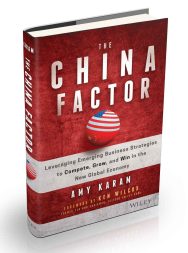 Politics and business are hard to separate in the global arena, nor should they be separated. That’s why I incorporated Politics as the 5th key component in formulating a successful global business strategy, as outlined in
Politics and business are hard to separate in the global arena, nor should they be separated. That’s why I incorporated Politics as the 5th key component in formulating a successful global business strategy, as outlined in 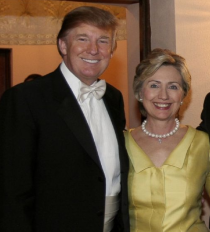 musing, astonishing and ‘educational’ to say the least. The platforms of republican and democratic parties, by definition and tradition, have been on a varying spectrum of polar opposites. And the recent campaign trail has proved to be one of extremes, if not only for the radical differences in the candidate personalities. Donald Trump and Hillary Clinton could not be more different in terms of their background, experiences and political platforms.
musing, astonishing and ‘educational’ to say the least. The platforms of republican and democratic parties, by definition and tradition, have been on a varying spectrum of polar opposites. And the recent campaign trail has proved to be one of extremes, if not only for the radical differences in the candidate personalities. Donald Trump and Hillary Clinton could not be more different in terms of their background, experiences and political platforms.